
Online Computer Science Degree
Bachelor of Science in Computer Science
Choose an online computer science degree to prepare for the foundational knowledge you need in the field of IT. Develop core skills in programming and deepen your understanding of artificial intelligence (AI) and big data. Learn to apply computer science theory to real-world challenges by writing and presenting applications to gain hands-on experience. You can also use elective courses to earn a certificate in cybersecurity, networking, cloud computing and more to enhance your IT skills.
Job-ready skills for your professional profile
Complex problem solving: Analyze a complex computing problem to apply principles of computing and other relevant disciplines to identify solutions.
Integration: Evaluate a computing-based solution to meet a given set of computing requirements in the context of the program’s discipline.
Complex problem solving: Analyze a complex computing problem to apply principles of computing and other relevant disciplines to identify solutions.
Integration: Evaluate a computing-based solution to meet a given set of computing requirements in the context of the program’s discipline.
Software engineering: Apply computer science theory and software development fundamentals to produce computing-based solutions.
Software engineering: Apply computer science theory and software development fundamentals to produce computing-based solutions.

Career-relevant education with real-world value
Program at a glance

Your online computer science degree helps you learn relevant programming languages. Build your SQL skills to manage big data. Learn Python so you’re prepared for tasks such as back-end development and software development and hone your programming capability with Java Programming I and II.

Passing industry exams allows you to add proven skills to your resume and enhance your IT career. Four elective courses in the program are aligned with requirements of the CompTIA A+ 220-1101 and 1102 industry certification exams.

The capstone course of your CS degree gives you the opportunity to create an application and present it to your peers. Develop communication and presentation skills that take you beyond programming. Build leadership capabilities so you can showcase the viability and marketability of the applications you create.
Program by the numbers
4 years
Average program length

120 credits
Number of credits required

5 weeks
Course length for the BSCS

24/7/365
Online class availability

Time is valuable – don’t spend it repeating coursework. Finish what you started.
Courses for the Bachelor of Science in Computer Science
Find what you'll learn in a course – look for the skills-aligned trophy cup
Using labor analytics data, we embed skills you’ll need in the growing information technology field into each course of your online computer science degree. You’ll learn about complex problem-solving, integration, software engineering and leadership.
Requirements and course details
Your course schedule may vary based on transfer credits or credits earned through the University’s Prior Learning Assessment.
- Completion of a minimum of 120 credits, including:
- General education: 49 credits
- Information Systems and Technology Electives: 18 credits
- Core courses: 53 credits
- A minimum of 39 upper division credits
- A minimum grade point average (GPA) of 2.0
Core courses build your knowledge of all aspects of computer science including the design of computer systems, computer science theory, concepts in algorithms and logic, programming, computer and network architecture, and software development.
You’ll learn how to:
- Analyze a complex computing problem to apply principles of computing and other relevant disciplines to identify solutions.
- Evaluate a computing-based solution to meet a given set of computing requirements in the context of the program’s discipline.
- Recognize professional responsibilities and make informed judgments in computing practice based on legal and ethical principles.
- Apply computer science theory and software development fundamentals to produce computing-based solutions.
Elective courses expand your computer science core knowledge, exploring topics such as network troubleshooting and support, PC and mobile operating systems, cloud services, data analytics and more.
General education courses enhance your education for potential growth in the IT field. You develop soft skills that can contribute to management and leadership roles within an IT department or organization.
You'll learn these soft skills sought by employers:
- Problem solving
- Information literacy
- Decision making
- Innovation
- Strategic thinking
- Research
- Investigation
- Written communication

Add one or more IT certificates to your online computer science degree
IT certificates can help you pursue an IT career specialized to your goals. Many IT certificates align with skillsets employers want. They can also be applied toward your computer science degree requirements, saving you time and money while adding no extra time to completing your degree. Add a certificate as an elective and enhance your computer science specialization.

Scripted & Compiled Programming Languages help you gain a solid foundation in Python and Java to create programs for applications in fields like data analysis and cybersecurity.
The Advanced Software Developer certificate helps you learn, design and implement software solutions. You will explore multiple programming languages and software architecture principles.
With the Cyber & Network Defense certificate, you will learn how to take a proactive approach to network security by spotting weaknesses before hackers can exploit them. This certificate helps you prepare for the EC-Council Certified Ethical Hacker (CEH) exam.
Choose the Cloud Computing certificate to gain the foundational knowledge and skills to help organizations build and manage cloud services.
With the Advanced Cybersecurity certificate, you can develop technical knowledge in the fast-growing field of IT security, helping keep information systems safe from data breaches and cyberattacks.
How skills-aligned learning works
What’s something employers are looking for in job candidates? Skills! That’s why we believe in career-focused education. Our programs are designed to help you demonstrate career-relevant skills and put them into practice within weeks, not years. Here’s how:
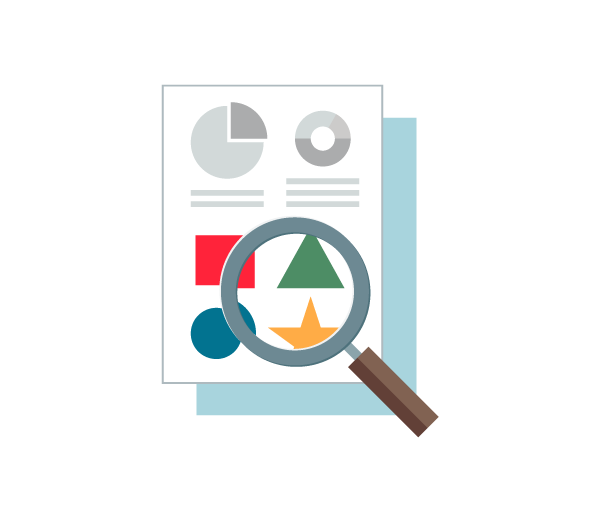
Curriculum
We work with a labor market analyst to identify skills today’s employers want in job candidates and embed those skills in our program’s curriculum.
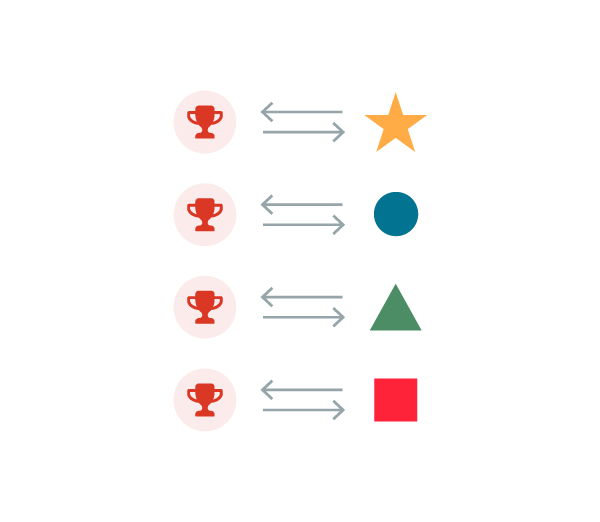
Courses
Each course you take teaches specific career-relevant skills – one skill per credit, on average. For a 3-credit course, you can earn 3 career-relevant skills.
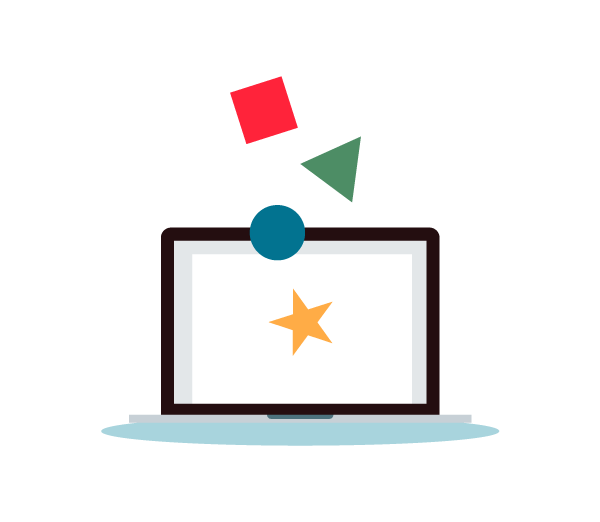
Careers
Demonstrate your newly acquired skills, earn badges, build your professional profile and show potential employers what you bring to the table.
Career opportunities with an online computer science degree
Our program isn’t just about earning a CS degree – it’s about getting ready for your career. Learn practical knowledge and develop skills to prepare for roles as application designer, computer consultant and software developer.
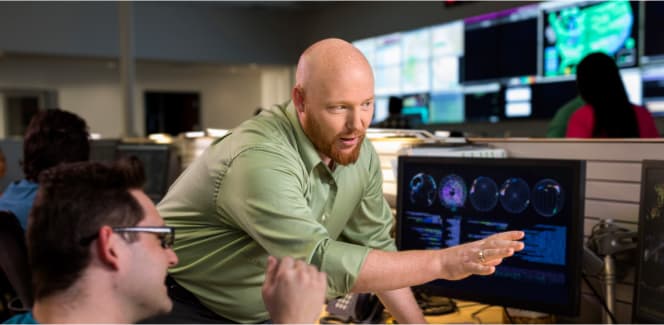
Skills learned in this program:
- Complex problem solving
- Integration
- Leadership
- Software engineering

A BSCS can prepare you to be a:
- Application developer
- Computer consultant
- Information technology analyst (IT analyst)
- Software developer
- Technical consultant

You may work in:
- Computer system design and related services
- Software publishers
- Finance and insurance
- Manufacturing

Career guide
Software Developer
Increased demand for software developers stems from the continued expansion of software development for artificial intelligence (AI), Internet of Things (IoT), robotics, and other automation applications. Pursue your interest in designing software and focus your CS degree.

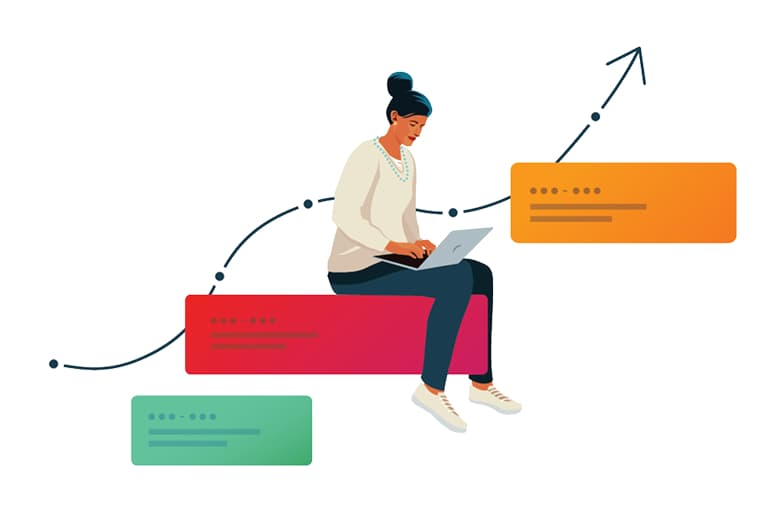
Career outlook
15% growth
According to the Bureau of Labor Statistics, job growth for software developers, quality assurance analysts, and testers are projected to be much faster than average between 2024 and 2034.
The BLS Projected Growth for 2024-2034 is published by the US Bureau of Labor Statistics. This data reflects the BLS’ projections of national (not local) conditions. These data points are not specific to University of Phoenix students or graduates.

Career story
“
I was inspired to go to college to better myself in another industry. I loved electronics and wanted to know more if I could learn coding, computer science, and forensics."
DaJeannette M. BSIT, 2023

Cost and savings
Paying for school
Tuition is based on number of credit hours per course. Courses are typically 3 credits, but can range from 1-6 credits. Costs do not include savings opportunities like transfer credits and scholarships.
What affects the overall cost of my program?
Your full program cost can vary by:
- Savings opportunities. Your cost could be reduced with eligible transfer credits, scholarships, employer discounts and more. Students with eligible credits and relevant experience on average saved $11K and 1 year off their undergraduate degree at University of Phoenix.
With our Tuition Guarantee, you pay one flat, affordable rate from the moment you enroll to the day you graduate from your program.
Discover ways to save time and money on your degree with our Savings Explorer® tool:
Other ways to save on time and tuition
Because we believe everyone deserves an affordable education, we work hard to help our students achieve one. Here’s a few ways you can save time, save money and avoid starting from scratch.
Transfer credits
Your prior eligible college credits can lower your cost and help you graduate sooner. As a transfer-friendly university, we accept eligible credits from 5,000+ accredited institutions.
Employer tuition benefits
Are you employed? Check to see if your employer has an alliance agreement with us for education benefits. This can help you save money while gaining skills that could apply to your job.
Credit for life experience
We look at all your relevant experience, from parenting to past jobs, to help you get the college credits you deserve. For every 3 credits earned, shave 5 weeks off your degree.
Alumni savings
Are you a Phoenix alum? If so, you’re eligible for special tuition rates and can save up to $2,880 on a bachelor’s degree. You can also save with an alumni scholarship.
Military savings
If you’re an active-duty service member in the U.S. Armed Forces or an eligible spouse or dependent, you may be eligible for a lower, military tuition rate and can save on tuition.
National testing providers
Do you have expertise in a specific subject? Earn college credit based on your performance on national, standardized tests to save time and money on tuition.
We can help you get started
Chat with an experienced advisor who can guide you through tuition, financial aid, scholarships, transfer credits and more.
- View 1
- View 2
- View 3

Budget & borrow
How to pay for college
Paying for school can be intimidating, but we’re here to help you make sense of it. Our finance advisors can walk you through your options like federal financial aid and savings opportunities to minimize your debt. Plus, we can help you figure out your financial plan.
Why choose us?
Where you earn your degree matters

Career-relevant skills
Every five weeks, you can develop career-relevant skills, track your progress in each class and showcase your achievements using your personal skills profile.

Real-world faculty
Your instructors know what works in the real world. As leaders in the field, they bring a hands-on perspective and practical knowledge to the classroom.

Flexible learning + support
Balance it all — work, family and school — with a university built for busy adults like you. Plus, get personal support by phone, chat or email — day or night.

Career Services for Life® commitment
Because your career never stands still, active students get access to career services and resources, from your first class to graduation and beyond, at no added cost.

Faculty spotlight
Get to know one of our IT instructors
“
I like to involve the students as active participants in the teaching process. Getting them involved through teamwork, presentations, discussion posts, etc., goes a long way to reinforcing learning. And it makes the class more fun, too.
Daniel D'Urso, MBA, MS Computer Science
Faculty, College of Business and Information Technology

Accreditation
Accredited for 45+ years
Since 1978, University of Phoenix has maintained institutional accreditation by the Higher Learning Commission (HLC), hlcommission.org. Learn more about the value of University of Phoenix accreditation and how it benefits our students.
Frequently asked questions about the online computer science degree
The field of computer science continues to grow so it may appear oversaturated to those entering the job market. However, factors such as a focus on specialization within a specific IT field and hands-on experience in computer science can affect a career outcome. That’s why University of Phoenix focuses on real-world experience in the classroom including a capstone course in which you build and present an app as you would in the IT workplace. We also offer additional certificates that help you specialize in your CS degree field.
An online computer science degree provides you with the knowledge and skills for opportunities including application developer, computer consultant and IT analyst for organizations.
Coursework for the Bachelor of Science in Computer Science program covers the three most popular data programming languages: Python, Java and SQL. Students will be introduced at a high level to the programming languages as they relate to database design, development, and management. Learn more about the Data Programming Languages course.
While the Bachelor of Science in Computer Science program does not include industry certifications, some of the electives in the program align with third-party industry certification exams.
Electives that align with CompTIA A+ exam:
PC and Device Fundamentals
Network Troubleshooting and Support
Introduction to PC and Mobile Operating Systems
Computer Security and Operational Support Fundamentals
Articles related to the Bachelor of Science in Computer Science
While widely available, not all programs are available to residents of all states. Please check with a University Enrollment Representative.





